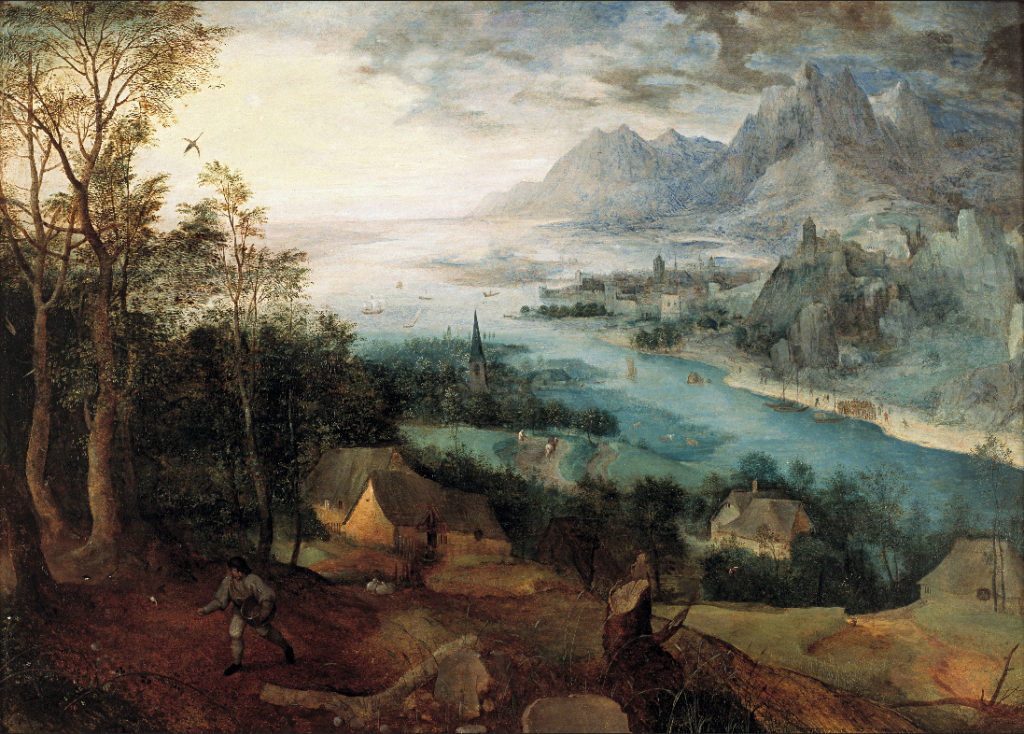
Spiritual Sunday
The 18th century poet Christopher Smart, most famous for Jubilate Agno in which he sees his cat as “the servant of the living God,” was noted in his time for working to make Jesus’s parables accessible to all. His first poem in the collection is “The Sower and the Seed,” today’s Gospel reading.
In it, he raises the question of why Jesus resorts to parables rather than speaking “thy gracious will outright.” The answer: Because the truth “is reserved for you.” God’s mysteries are only for those who have ears to hear.
The collection is entitled The Parables of Our Lord and Saviour Jesus Christ Done into Familiar Verse, with Occasional Applications, for the Use and Improvement of Younger Minds (1768) and was aimed at the newly literate middle class as well as children. Challenging the Anglican hierarchy, Smart assures his audience that the “mystic lore” Jesus shares with them may be denied to kings and patriarchs. In line with the newly emerging evangelical movements such as Methodism, Smart was aiming more for an emotional than an intellectual engagement with the Scriptures.
As an aside I note that, in one of the high points of my life, I learned directly from Allen Ginsberg that Christopher Smart was one of his favorite poets. He told me this upon learning that my research specialty is 18th century British Lit. I suspect, however, that Ginsberg was more taken with the long rambling catalogues of Jubilate Agno and the joyous celebration of Song for David than with Smart’s parables.
The Sower and the Seed
By Christopher Smart
‘Twas thus the Light of Light, the Son
Of God , his moral tales begun
Behold, the parable I show:
A sower went his way to sow,
And, as the kindly grain he threw,
Some by the beaten pathway flew,
And there, neglected as it lay,
Fell to the birds an easy prey.
Some upon stony places fell,
Where, as it was not rooted well,
For lack of depth it soon appeared:
But, when the sun the vapors cleared,
It perished by the scorching air,
Because it wanted ground to bear:
And some amongst the thorns was cast,
Which choked them, growing up too fast.
But some upon a kindly soil
Fell, and repaid the workman’s toil
And these an hundred fold increased,
Those sixty, thirty ev’n the least.
He, to whom God has giv’n an ear,
Let him attend the word in fear.
He spake—and as he made a pause
His scholars came, and asked the cause—
Why dost thou parables recite,
Nor speak’st thy gracious will outright?”
Because it is reserved for you,
He cries, God’s glorious light to view;
But from the race, that have rebelled,
Are heav’nly mysteries withheld;
For those that deathless treasures store
Are sure to reap the more and more,
While him, that makes his little less,
I finally shall dispossess.
I therefore parables devise—
Because, although I made them eyes,
Yet is not their discernment clear,
Nor have they for the truth an ear;
That in the hardened and self-willed
Isaiah’s words might be fulfilled:
“In hearing shall your ears be blest,
And not one word shall ye digest;
And seeing ye your God shall view,
Nor shall ye know him, when ye do
For callous hearts this race have got,
Their ears are clogged, their eyes are not:
Lest, when the season is at hand,
They see, and hear, and understand,
And all at once be converts found,
And I should heal their inward wound”—
But blessed are your eyes, that see,
And ears, that hear in verity.
For many kings and patriarchs too
(So great the grace indulged to you)
And prophets by the word inspired,
Have with all fervent prayer desired
To see the things, which ye behold,
And hear the myst’ries, I unfold,
And all their vows, and earnest suit,
Were premature, and bore no fruit.
Hear, then, and note the mystic lore
Couched in the story of the sower.
When a man hears, not to retain,
The word of Christ’s eternal reign,
Then comes the fiend, and takes away
The grace his heart could not obey.
This is the seed that was implied
As wasted by the pathway side.
But that receiver of the grain
Sown on the stony ground in vain,
Resembles one of cheerful heart,
Who hears and acts a Christian’s part,
By bearing instantaneous fruit,
But having neither depth nor root,
By scourge of power, or worldly loss,
Straight is offended at the cross
He likewise that received the seed
‘Mongst many a thorn, and many a weed,
Is he, that hears the word, and trusts,
But treach’rous wealth and worldly lusts
Choke up his heart with carnal care,
Till all is naught and barren there.
But men of upright hearts and sound
Receive the seed on kindly ground;
The word, which they are apt to hear,
Is to their understanding clear.
These at the harvest we behold
Some bearing fruit an hundred fold,
Some sixty, for the bridegroom’s feast,
And thirty ev’n the last and least.